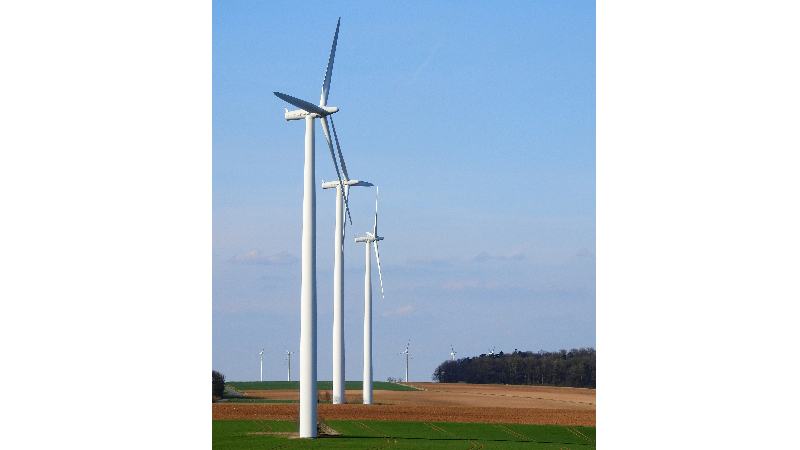The popularity of onshore wind farms in rural areas revealed by Oxford Brookes research

Onshore wind farms as a sustainable solution to the energy crisis are more popular with the public than many people think, according to a study by a senior lecturer in psychology at Oxford Brookes University.
The research, conducted by Dr Ben Kenward as part of a survey project called SOOLE (Surveying Opinion On Local Energy), aims to advance psychological understanding of opinions about wind turbines.
Dr Kenward’s research revealed that nine out of ten rural communities surveyed demonstrated majority support for the idea of local wind turbines. Support stood at 71% to 80% and opposition 11% to 24%, depending on the survey methods used.
Researchers surveyed households in 10 communities, seven of which are in or adjacent to Areas of Outstanding Natural Beauty (AONBs), in Gloucestershire, Oxfordshire, Buckinghamshire, Berkshire, Hampshire and Dorset.
Questionnaires were filled in by 1,148 participants. These were followed up with doorstep interviews in five areas, which increased the response rate to 69%. Support was still at 72% in the doorstep interviews. For increased validity, the study asked participants to comment on fictional, but realistic and detailed wind turbine plans for their area. Sometimes these were previously proposed real plans that had not gone ahead.
“Whilst our interview sample size is small, we have nevertheless shown that the majority of people in these communities who participated in the survey are in favour of wind farms,” said Dr Kenward.
“Another important finding of this research relates to how those people perceive the views of others. This survey shows people tend to have a distorted view of others’ opinions. On average, people over-estimated opposition in their area five-fold.
“If this helps people to understand that others are also positive about renewable energy like wind turbines in their local area, it could spur further motivation for change.”
Dr Lee de Wit is Assistant Professor of Psychology at the University Of Cambridge and specialises in political psychology. Endorsing Dr Kenward’s research, he said: “This work reinforces a large body of literature which demonstrates we often misperceive support for different policies. This is particularly crucial for climate change, where rapid changes are needed, but Government needs to be confident those changes are supported by the public to take action.
“It is very easy for the voice of a vocal minority to be perceived to be more representative than it is. This work highlights how important it is to actually ask people their opinions, and to ask them in very concrete terms in relation to their own lives and lived environment. It also reinforces how we need to ask people in different ways, both through surveys, but also through door-to-door questions.”
Dr Kenward’s research has already been fed into a recent consultation by the UK government's Department for Energy Security and Net Zero entitled Developing Local Partnerships for Onshore Wind in England.
The consultation response was submitted by Dr Kenward and Dr Alison Chisholm, a researcher at the Nuffield Department of Primary Care Health Sciences, University of Oxford.
Read the full preliminary report, Majority Support for Local Wind Turbines in Beautiful Rural Areas in the South of England.
